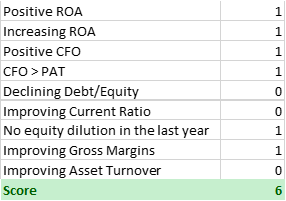I have been invested in PI Industries for many years now. The aspects which appealed to me first, continue to appeal to me even now. The company has, over the years, managed to strengthen its moat and scale greater heights. The way the company has scaled its CSM & CRAMS business along with strengthening domestic distribution has been exemplary.
Recently, during the Valuepickr conference in Goa, I was thinking about if PI's business moat and whether it was widening or shrinking. So, I decided to see how they were placed and see if I can poke some holes in their story.
BEAR CASE
CONCLUSION:
Recently, during the Valuepickr conference in Goa, I was thinking about if PI's business moat and whether it was widening or shrinking. So, I decided to see how they were placed and see if I can poke some holes in their story.
BEAR CASE
- Move from contract research to manufacturing will mean additional capex, reduced asset turns and lesser ROE
- Risks - i) GM seeds, ii) herbicide resistance in plants, iii) client concentration, iv) gene-edited seeds
- Contract research market is slowing due to:
- New molecules are more difficult to get
- 1st year sales have reduced drastically
- High cost of new development of new molecules
- Bio-tech is replacing agrochemical usage
- Bayer, PI's largest client, is forecasting poor agrochemical growth due to high inventory, farmer stress in Brazil and Europe, reduction in corn acreage in US
- Excel Crop has applied for manufacturing registration of (Bispyribac Sodium) Nominee Gold
- 33% of the products in PI’s portfolio is in-licensed and faces a risk of import restrictions
- Tax rates to go up substantially from 10% to 22-23%
- With Bayer's acquisition of Monsanto (if it gets completed), there may be some changes in the relationship with PI
BULL CASE
- $6bn is going off-patent in next 6 years
- Moving to Pharma CRAMS, a much larger market. Inducted a team from AstraZeneca over last 2 years. They have also inducted a Pharma veteran - Mr Balaganesh, ex-MD and Head of Research of AstraZeneca's anti bacterial research facility - on their board as Additional Independent Director. Several other senior level recruitments to drive Pharma CSM.
- Domestic market to grow substantially.
- Imports made more stringent, hence more products to be made in India versus imported
- Recent tie-up with Kumiai Chemicals for producing Nominee Gold in India and also partner on other new molecules
- JV with Mitsui for providing registration services - pre-launch feasibility analysis, market research and feasibility analysis. Mitsui is a global major in performance materials, petro & basic chemicals and functional polymeric chemicals
- JV with BASF to produce
- Pendimethalin - Global sales US$325m - directly competing with Rallis in India
- Saflufenacil - Global Sales US$180m
- Dimethenamid - Global sales US$145m
- Order book of $1 bn (June 2017) for 8-9 molecules
- Improving margins due to better product mix and operating leverage
- Jambusar facility capacity utilization is 65-60%, leaving a lot of room for operating leverage to kick in
- Global AgChem spending has been on a downswing and a recovery is supposed to pickup from 2018
From Bayer's
presentation - Jun 2016
CONCLUSION:
PI seems to be consciously changing themselves with JVs & partnerships to launch newer service offerings and product launches in India. Having done very well during the time AgroChem producers have struggled globally, they are poised for better times in FY19. The near term (1 year) may still remain a struggle due to the industry headwinds and revenue growth may not be very strong. The business seems to be on a very strong wicket specially given that agriculture as a sector is likely to be very strong with increased global population and need for more efficient & abundant farm production.











